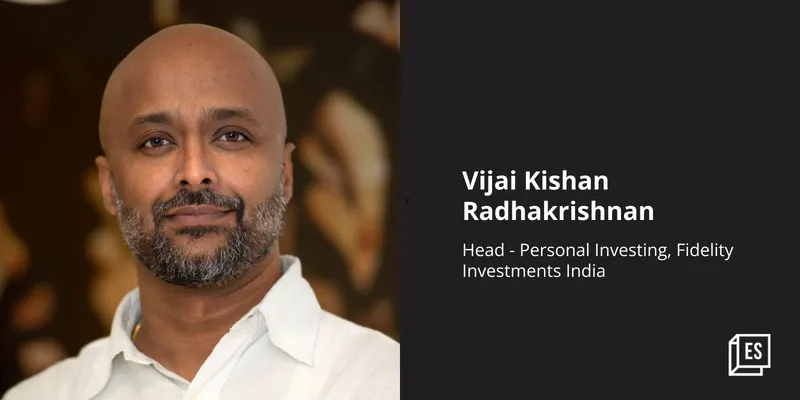Fidelity India has emerged as the tech backbone of the financial services giant
Two decades of operations in the country have enabled Fidelity India to drive certain technology leadership roles for the parent organisation globally.
Fidelity, the Boston-headquartered financial services powerhouse which launched its technology operations centre in India way back in 2003, is on the path of creating centres of leadership to lead global roles for the company from the country.
Today, Fidelity India has over 7,000 employees spread across Bengaluru and Chennai focused on three main functions—operations, analytics and data science. The company believes the India operations, which it generally refers to as global capability centres (GCC), has achieved a certain level of maturity which has positioned it to take leadership roles in a few technology product areas.
In a conversation with YourStory, Vijai Kishan Radhakrishnan, Head, Personal Investing, India and Regional Chair, Fidelity Investments India, says, “We are creating more global roles owning some technology components and also becoming flag bearers for some products.”
For Fidelity India, which started as a cost arbitrage destination, the journey to move up the value creation has taken two decades.

Why technological innovation in ecommerce logistics is key for MSME efficiency
As the largest centre outside of the US, Fidelity India plays a key role in the financial services firm’s operations, especially in the running of its technology platforms. Fidelity’s core brokerage platforms, for example, are managed and driven completely by the team in India.
Radhakrishnan describes India operations as a microcosm of Fidelity globally. The company has over 70,000 employees across the world
Fidelity India focuses on three areas. Firstly, it builds a lot of digital ecosystems for the financial powerhouse which includes reworking its existing technology systems in what it calls as re-platforming. Secondly, the analytics and big data division provides various insights which leads to decision making and lastly, it is engaged in building various tech products.
“In India what we do very well is quick experimentation where we are able to build the future technology platforms,” Radhakrishnan says.
These quick experiments are critical for a company like Fidelity, which has over 42 million individual investors and $11.1 trillion in assets under administration. Here, there are also rapidly changing requirements of the customers and this need can be met only where there is greater agility through technology.
Radhakrishnan believes that the element of maturity at Fidelity India is demonstrated through the ownership that has been taken by people in the country.
“We have taken, owned and driven some products from here where the critical architects are running the platform,” he remarks.
The strides made by Fidelity India are also a reflection of the changes that have taken place in the GCC landscape in the country. NASSCOM and in a recent report, GCC 4.0—India Redefining the Globalisation Blueprint, highlighted the strides by this segment in the larger technology ecosystem of India.
More than 1.6 million people work at the nearly 1,580 GCCs, with a market size of $46 billion. The engineering and research and development segment alone accounts for $25.6 billion.
These GCCs are not just driving engineering expansion activities but are also co-piloting transformation efforts with their headquarters. From building new products or solutions to driving technology or process breakthroughs, GCCs have become the “beacons of business excellence lighthouse for their parent organisation”, the report said.
The growth of Fidelity India is also helped by the longer tenure of its employees within the organisation. Given that the average tenure of the workforce is high it gives them the opportunity to try out different things across multiple areas, according to Radhakrishnan. Added to this, there is strong emphasis on the learning quotient be it in the area of domain, technology or other skills.
Given the rapid pace of technology change where there is always the danger of being left behind, Fidelity India is ensuring it stays ahead of the times. The India operations also have the presence of advanced technology labs looking at what value or product can be created from those.
“We have grown very organically and want to create more centres of gravity where there is a global leadership role with accountability,” Radhakrishnan said.
Edited by Affirunisa Kankudti






